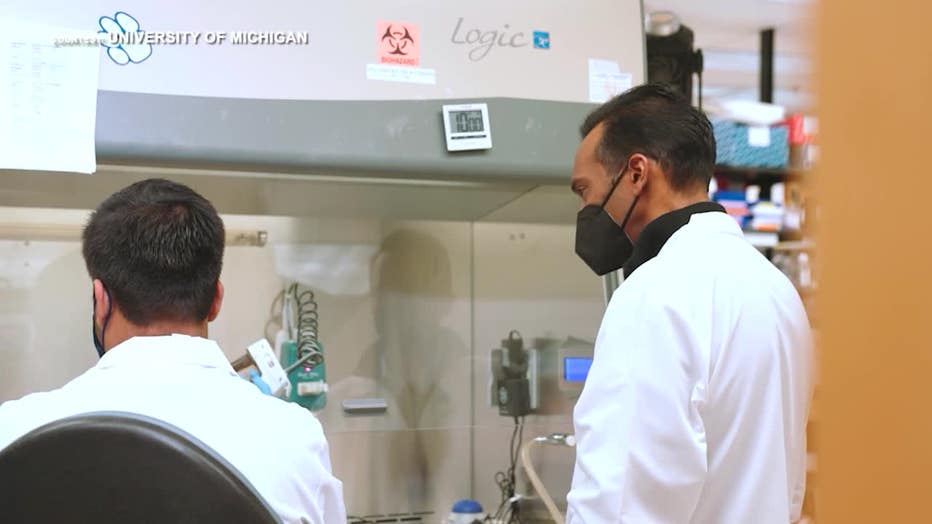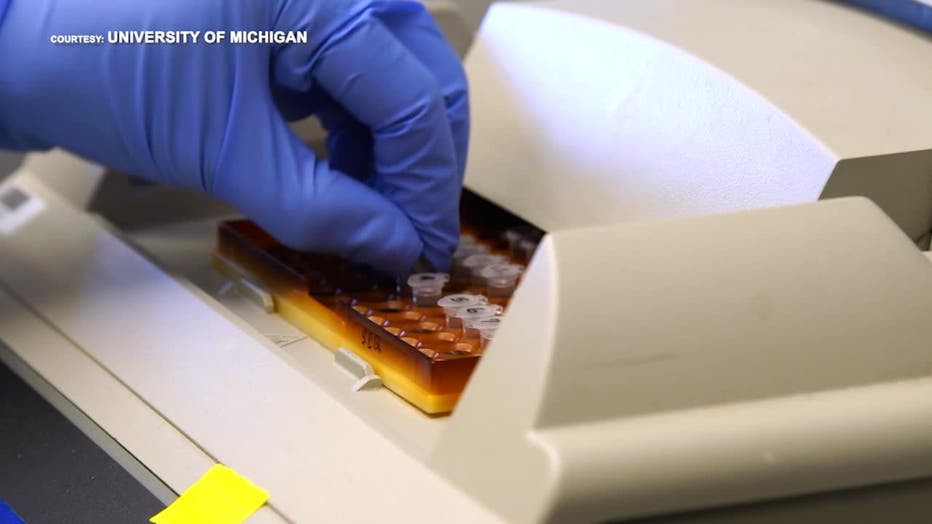New urine test may help men with elevated PSA levels avoid unnecessary biopsies

New test could avoid unnecessary biopsies
A new urine test for prostate cancer could help some men with high prostate-specific antigen numbers avoid unnecessary scans and biopsies. The FOX Medical Team's Beth Galvin talked with the doctor who created the screening tool about how it works.
ATLANTA - Each year, millions of American men get a blood test known as a PSA, or prostate-specific antigen, test as part of their yearly checkup.
PSA is a protein produced by the prostate gland.
If a man's PSA level goes up, the thinking goes, so does his chance of having prostate cancer, but an elevated PSA does not guarantee a man has cancer.
Infection, an enlarged prostate, and certain medications can all cause an elevated PSA level.
Dr. Arul Chinnaiyan, a professor of pathology and urology at the University of Michigan, says there is no way to distinguish between a low-grade and more aggressive, or high-grade, cancer based on a man's PSA level alone.
"Low-grade prostate cancer is perhaps more prevalent than the high-grade version of the disease," Chinnaiyan says.

He and his team have developed a kind of "next step" urine test for men whose PSA levels are in the borderline high range to try to determine what grade of prostate cancer they have.
"So this test is perhaps different from the existing urine- and blood-based tests out there for prostate cancer because it's really focused on detecting high-grade prostate cancer," Chinnaiyan says.
The urine test, called MyProstateScore2, or MPS2, builds on an earlier test Chinnaiyan and his team developed a decade ago.

It screens for 18 genetic markers that a recent study found are highly associated with high-grade prostate cancer.
"And, the high-grade version of the disease is a form of prostate cancer that tends to be aggressive and spread and metastasize and perhaps lead to the death of patients," he says.
If a man's PSA level is between three and 10 nanograms per milliliter, which is considered in the "borderline" range, Chinnaiyan says his doctor could order the test before deciding whether to proceed with an MRI or biopsy or wait and monitor his PSA levels over time.
One of the goals, he says, is to help men avoid unnecessary biopsies and other tests that can carry potential risks.
"One could, essentially, have this urine test instead of going to an imaging study or going to biopsy and so forth," he says. "So, it's really geared towards those patients that have this elevated PSA in the range of about three to 10 nanograms per milliliter."

